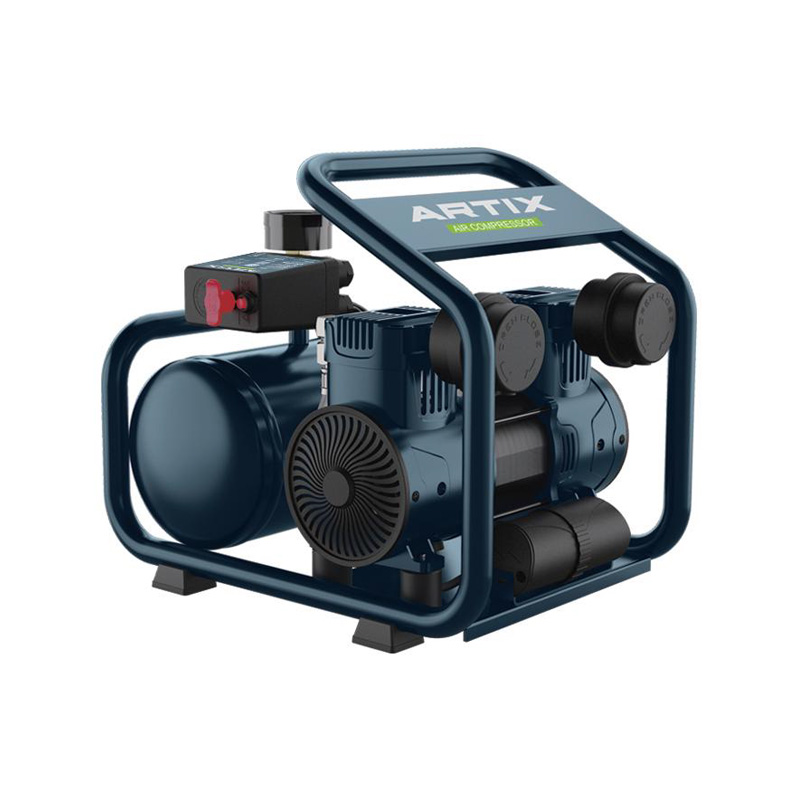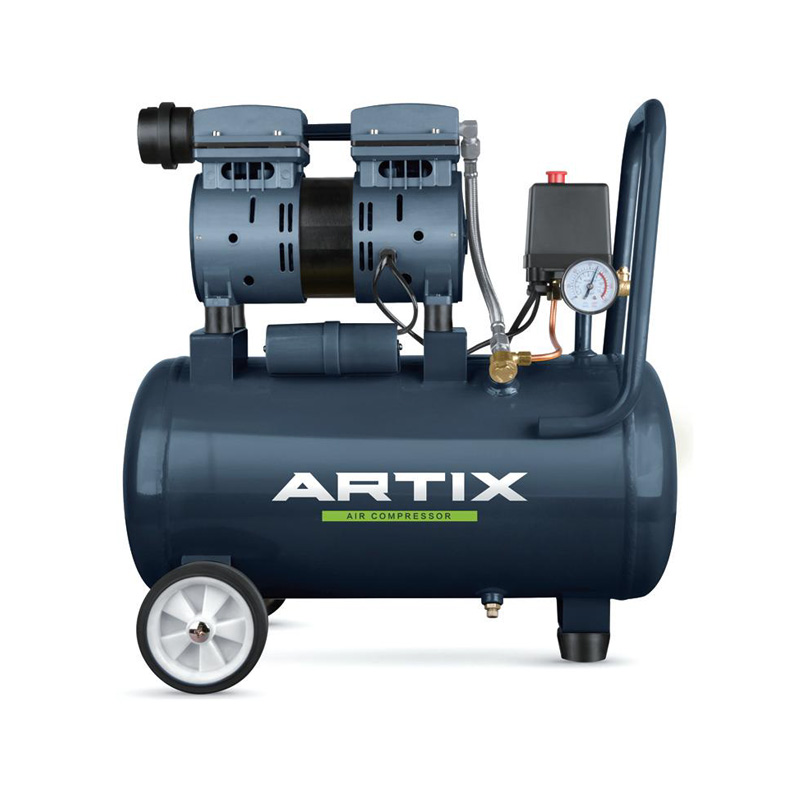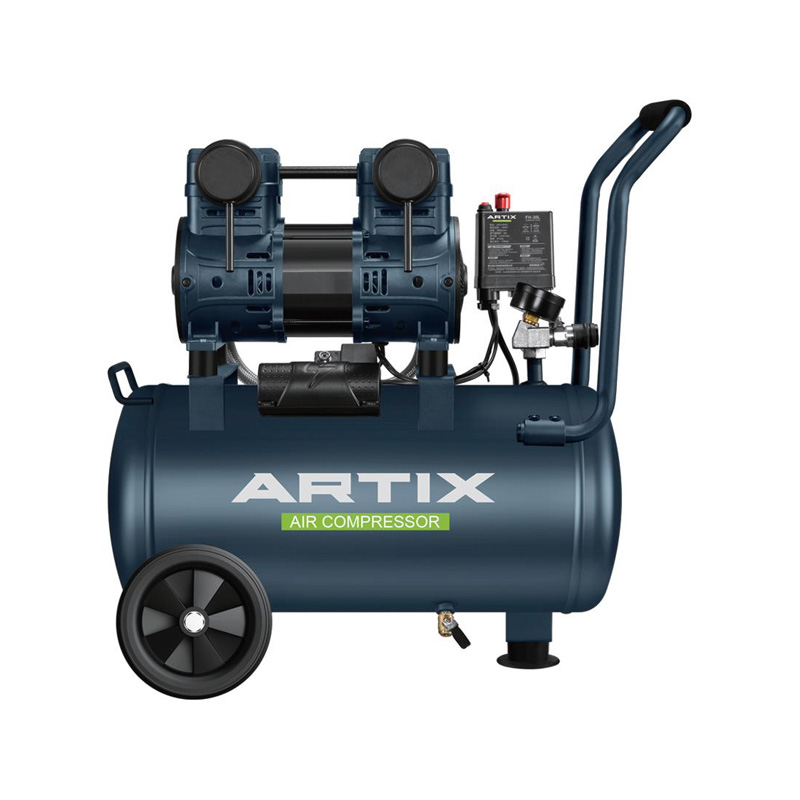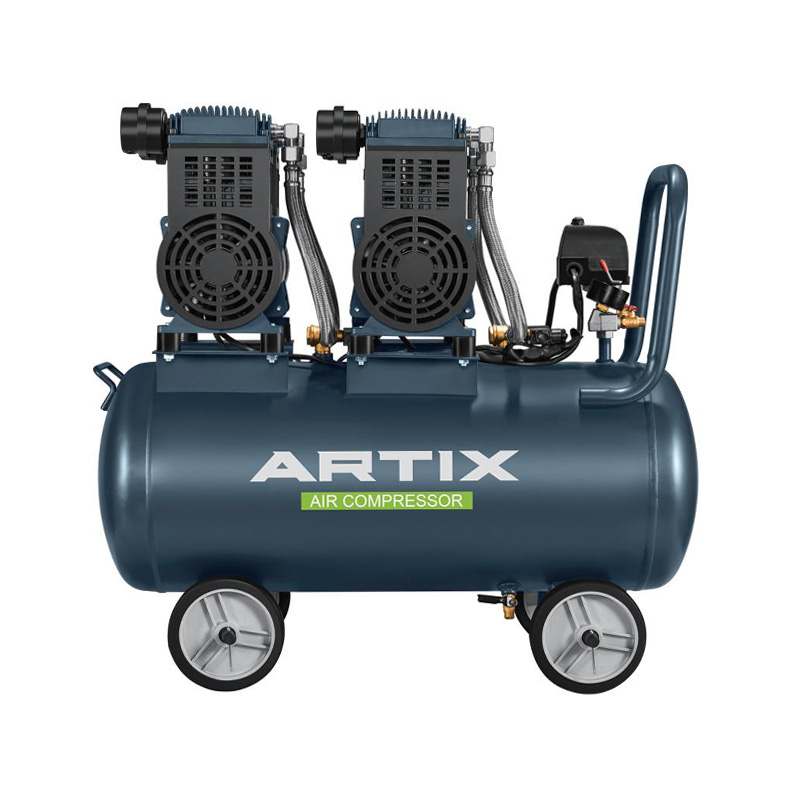Supply Industrial Oil Free Electric Powered Air Compressor in China
When choosing an air compressor for industrial use, one of the most crucial decisions you will make is whether to go with an industrial oil-free air compressor or an oil-lubricated version. Both types of compressors have their advantages and drawbacks, depending on the specific needs of your operations. In this article, we will explore the key differences between industrial oil-free air compressors and oil-lubricated air compressors to help you make an informed decision.

An industrial oil-free air compressor operates without the need for oil to lubricate the internal components. This feature eliminates the risk of oil contamination, making these compressors ideal for industries where air purity is critical. Industries such as food and beverage, pharmaceuticals, electronics, and automotive rely heavily on oil-free air to prevent contamination in their processes. In contrast, oil-lubricated compressors use oil to lubricate the moving parts inside the compressor, which helps reduce wear and tear and improves the compressor’s longevity.
One of the primary advantages of using an industrial oil-free air compressor is the purity of the compressed air. In many industrial applications, the presence of oil in the air supply can be detrimental. For instance, in food processing, even small amounts of oil can spoil products or damage sensitive machinery. An industrial oil-free air compressor ensures that the compressed air remains clean and free from contaminants, reducing the risk of production errors or failures. Additionally, because oil-free compressors don’t require oil changes, maintenance is typically simpler and less costly over time.
On the other hand, oil-lubricated air compressors offer certain benefits in terms of efficiency and cost-effectiveness, especially for industries that don't have stringent air purity requirements. The oil inside these compressors helps cool the components and reduce friction, which can enhance their efficiency and operational life. Oil-lubricated compressors are also generally more affordable upfront compared to industrial oil-free air compressors, making them a popular choice for companies on a tighter budget. However, the need for regular oil changes and the risk of oil leaks can result in increased maintenance costs and downtime.
Another factor to consider when comparing industrial oil-free air compressors to oil-lubricated compressors is their environmental impact. Oil-free compressors are typically more environmentally friendly because they eliminate the need for oil disposal. The waste oil produced by oil-lubricated compressors needs to be carefully handled and disposed of according to environmental regulations, which can add an extra layer of complexity to maintenance routines. In contrast, an industrial oil-free air compressor has a lower environmental footprint because it doesn't generate hazardous waste.
The longevity of an industrial oil-free air compressor also differs significantly from that of its oil-lubricated counterpart. While oil-lubricated compressors generally last longer due to the lubrication’s role in reducing friction, industrial oil-free air compressors are engineered with advanced materials and precision design to ensure long-term performance despite the lack of oil. These compressors often require less maintenance and fewer parts to replace over time, making them a good choice for industries that want to reduce long-term operational costs.
However, it’s important to note that industrial oil-free air compressors are generally more complex and expensive to repair if something goes wrong. Since they have no oil to help with cooling and lubrication, these compressors often incorporate specialized components that can be more difficult and costly to replace. In comparison, oil-lubricated compressors are often easier to repair because of their simpler design and the availability of more common parts.
Both types of compressors also vary in terms of noise levels. Industrial oil-free air compressors are typically quieter than oil-lubricated ones, which can be a significant advantage in noise-sensitive environments. Lower noise levels can lead to a more comfortable and safer working environment, especially in large factories or workshops where employees may be working in close proximity to the machinery for extended periods.
In conclusion, when comparing industrial oil-free air compressors to oil-lubricated air compressors, the decision comes down to the specific needs of your industry. If you need clean, contaminant-free air, and are willing to invest in long-term reliability and lower maintenance, an industrial oil-free air compressor is the better choice. However, if you are focused on cost-effectiveness and don’t require the same level of air purity, an oil-lubricated air compressor may be more suitable. Understanding the advantages and limitations of each type will help ensure you make the right choice for your business, keeping operations efficient and cost-effective while meeting the unique needs of your industry.





